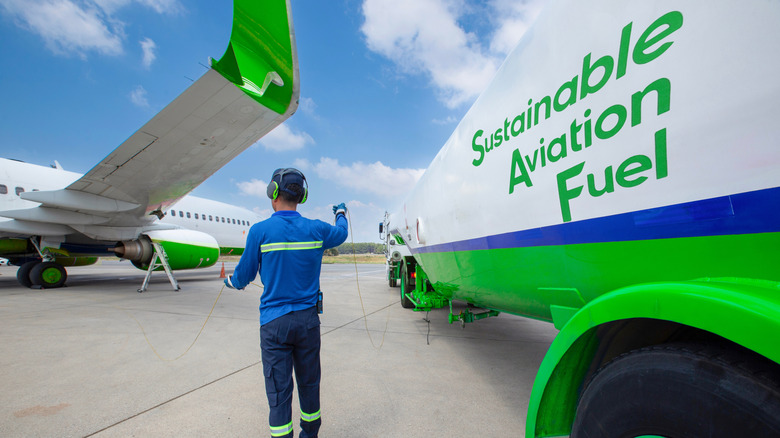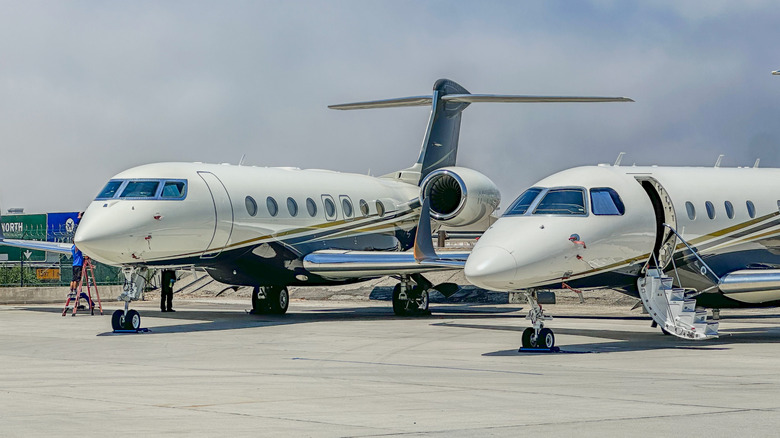Are Private Jets More Or Less Fuel Efficient Than Commercial Flights?
It is not an uncommon dream to be able to fly on a private jet. It doesn't matter if it's just something we get to do once in our lives either. Commercial air travel can be an absolute pain in the neck. Even if you have TSA Pre-Check or Clear, you still have to deal with cramped seating, annoying passengers, and flight delays that can screw up all your travel plans. With a private jet (here are some of the best in the business), you basically don't have to worry about any of that stuff and can comfortably fly either by yourself or with a select group of people you enjoy being around.
Private air travel is not all sunshine and roses though. Along with the high costs of owning or chartering a private jet, you also have to think about its fuel efficiency. Because they are designed for smaller, exclusive parties, you might think that a private jet is more fuel efficient than a commercial flight. From a pure gasoline standpoint, it is. The average midsize private jet will burn anywhere from 198 to 291 gallons of gas per hour, while an aircraft like the Airbus A320 burns around 676 gallons per hour.
However, that number is rather deceiving. From a per-person perspective, a private jet is far less efficient. Those 676 gallons per hour for the A320 are used to transport up to 180 people, depending on the cabin configuration. That equates to 3.76 gallons per person per hour. If you have 10 people on your private jet that burns 250 gallons on average, that's 25 gallons per person. As is so often the case with mass transit, commercial air travel is far more efficient.
The environmental impacts of private jets
As you might expect from a less efficient method of air travel, private jets have become a significant issue in the curbing of climate change. Carbon emissions from private jets have dramatically risen in recent years, seeing a 46% increase from 2019 to 2023. In 2023 alone, private jets accounted for over 17 million tons of direct carbon dioxide emissions. On the whole, private jets make up a little less than 2% of total carbon emissions from air travel, but in terms of who is actually responsible for these emissions, it is just a little over a quarter of a million people, or 0.003% of the population. That is a tremendously outsized effect these people have on the environment. Commercial air travel may be a bigger contributor in the overall, but on a per person basis, the carbon footprints are much worse for private jets.
Air travel accounts for 2.8% of all carbon emissions. That is a very low number, but if fewer people used private air travel, that number could go down ever so slightly. Some people are trying to find other ways of reducing a private jet's carbon footprint, such as using sustainable aviation fuel. This is a non-petroleum feedstock fuel that is estimated to reduce fossil fuel emissions by anywhere from 70% to 80% compared to regular gasoline. However, there are some who assert that SAF may actually increase net emissions rather than reduce them. While private jets are luxurious and a dream in the sky compared to commercial air travel, there just is no way to environmentally justify their use as they currently operate.

